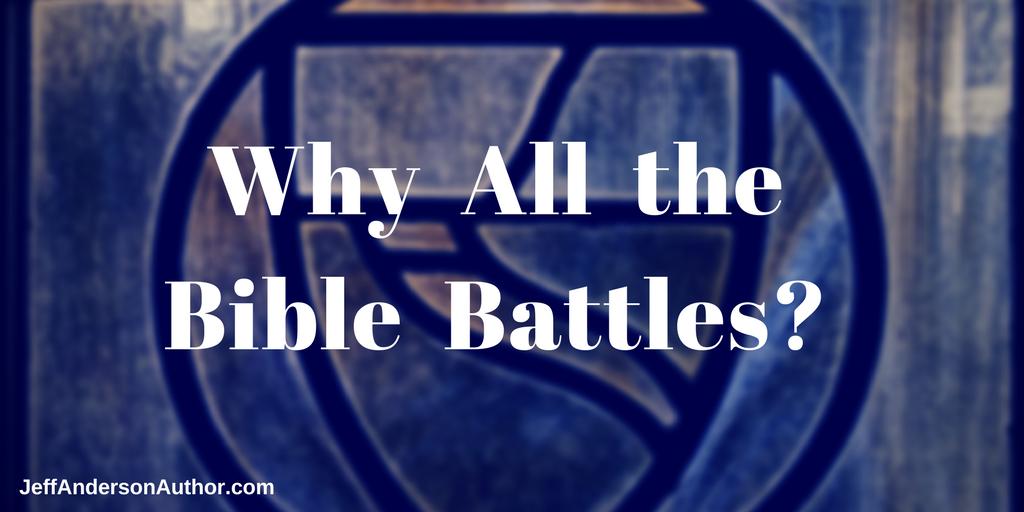
Often reading through the Old Testament feels like an endless list of casualty records – like reading about America’s Civil War – only much worse. Lot’s of killing. Big battles. Non-stop bloodshed.
(Read Joshua and Judges for some stories “Rated R for Intense Violence.”)
What’s the reason for all this death? Why was God involved in helping the Israelites to wipe out their enemies? And why, all of the sudden, does the killing campaign end as we enter the New Testament?
Why the shift in strategy – from destruction of enemies to “turning the other cheek?”
Let’s begin with a look at the beginning.
Protecting a promise
In Genesis 12, God made the following promise to Abraham:
“I will make you a great nation; I will bless you and make your name great; and you shall be a blessing. I will bless those who bless you, and I will curse him who curses you, and in you all the families of the earth shall be blessed.” (Emphasis added)
God promised blessing to Abraham, but also made the same blessing available to “all the families of the earth.” And today, you and I know part of Abraham’s future family was Jesus—The Seed.
When I read about all the battles, it really makes me wonder about the character of God. But what if the heart of God is revealed in the promise of blessing? And what if the character of God is revealed in the keeping of his promises—even if people stand in his way.
And what if the cause of all the bloodshed isn’t God? What if it’s caused by people who chose to disobey?
What if God is faithful to protect His promise, and protect The Seed, even if it means confronting those who tried to destroy it? The clear promise God made in Genesis meant that the decedents of Abraham must live. Which, let’s be honest, meant those who sought to kill those people were putting themselves (and their families) in the path of an unstoppable force.
The death and devastation we see in the Old Testament is even more tragic when we remember that God’s promise included the option for blessing and life. It was their choice. In Romans Chapter 1, Paul makes it clear that God allows free will, and that there are consequences for opposing Him.
Trying to wrap our heads around all the Bible battles is tough, but this point helps me make some sense of it—reframing God from the role of a bully to protector.
It’s all about The Seed
For 4,000 years God is working The Seed through history. Preserving the path for The Seed involves survival—keeping the lineage of Israel alive. And this means destroying enemies that stand in the way.
Time and time again, God’s supernatural intervention leads to massive death and destruction of humans. It’s hard for us to relate to this today. But it’s a testament to how God has preserved The Seed over the course of history.
As The Seed gets closer to the New Testament, the killing campaigns end. God even allows Israel to be exiled. But He keeps The Seed alive.
Once Jesus Christ finally appears on the scene, the campaign of destruction is replaced with a campaign of deliverance. Instead of destroying enemies that stand in the way, these enemies will have opportunity to be delivered from the wrath of sin.
The promise endures for those who choose life, because in Jesus, The Seed, “all the families of the earth shall be blessed.”
Perspective
I don’t pretend to understand the violence and destruction in the Old Testament. (Don’t trust anyone who says they do!) But when you see the biblical story as a promise God made to bring a Deliverer, you can see that His protection of that Seed was the highest priority.
Knowing the big picture makes all the difference.
(This post is adapted from my new book, Power-Read The Bible – A Companion Guide for Your 60-Day Journey.)



